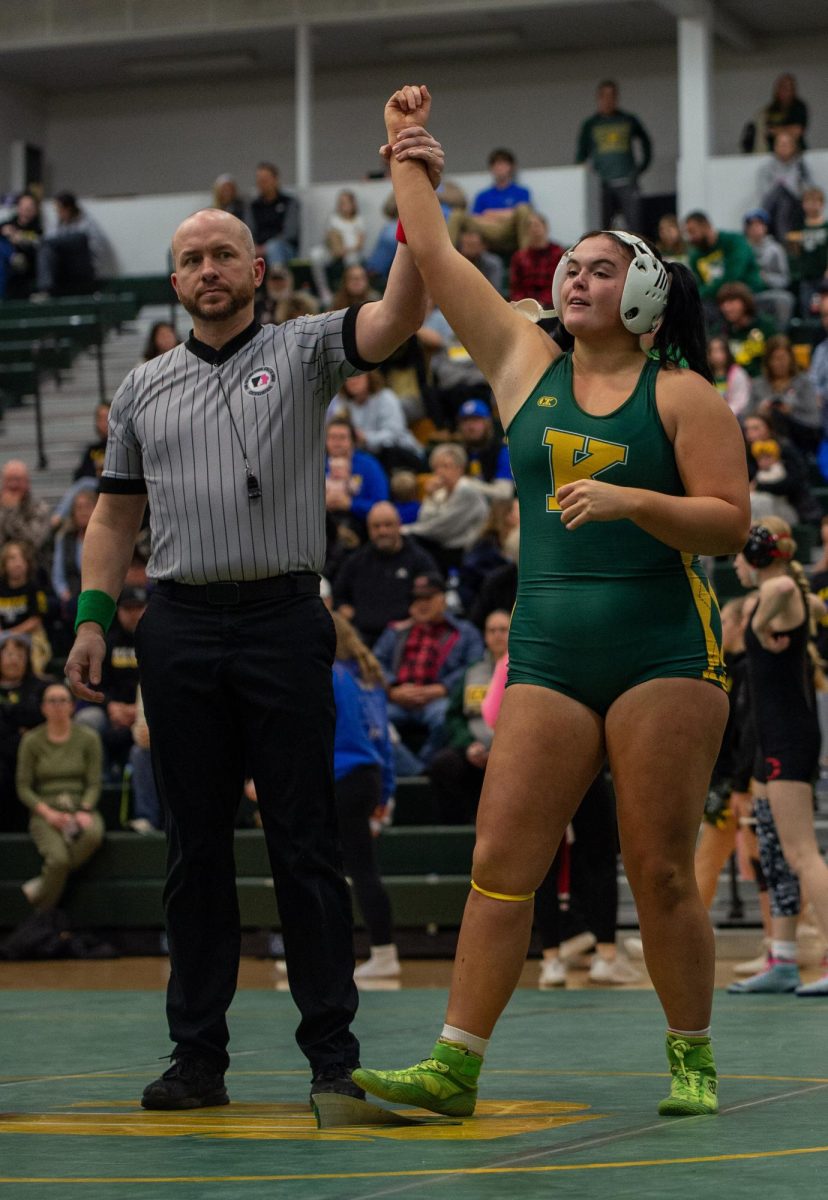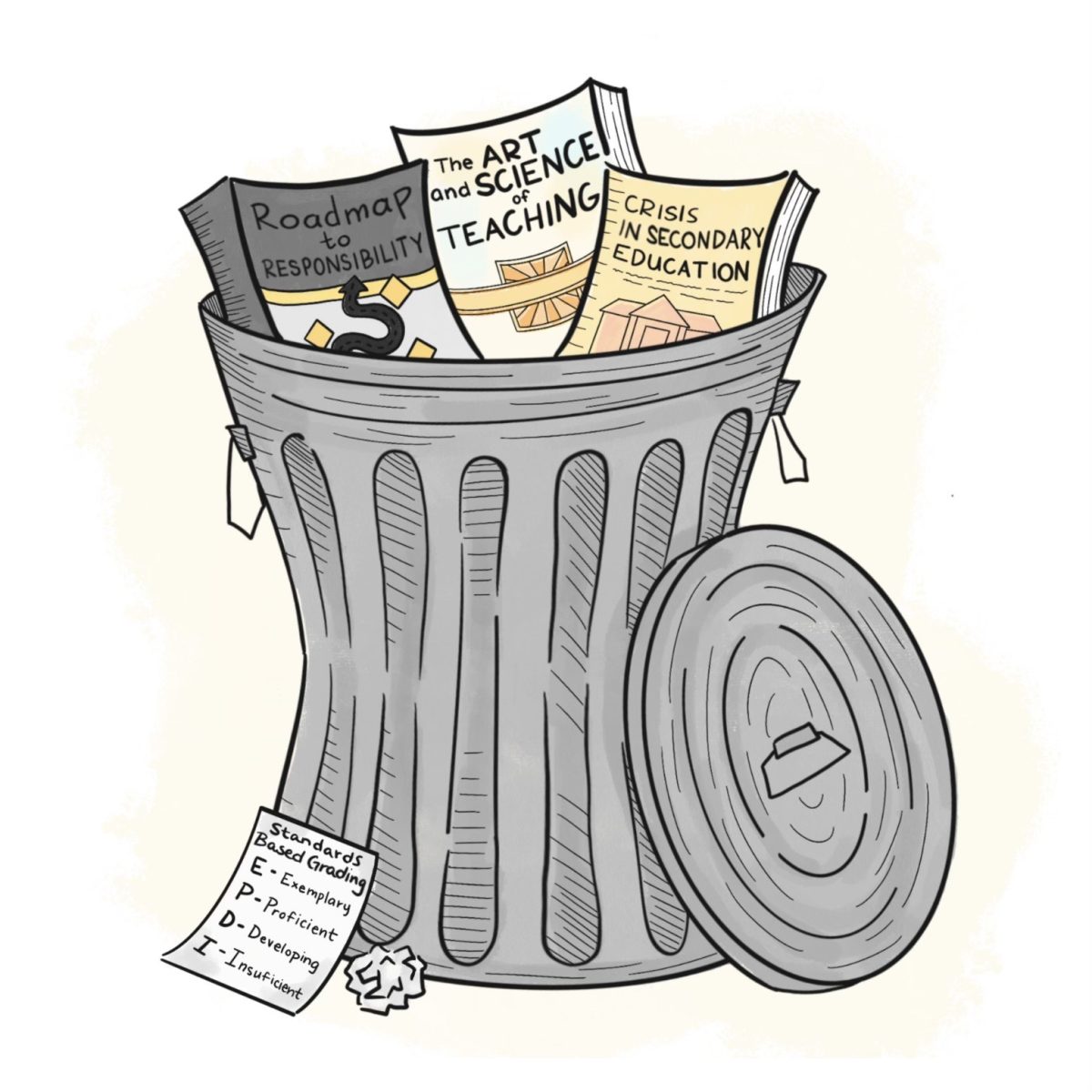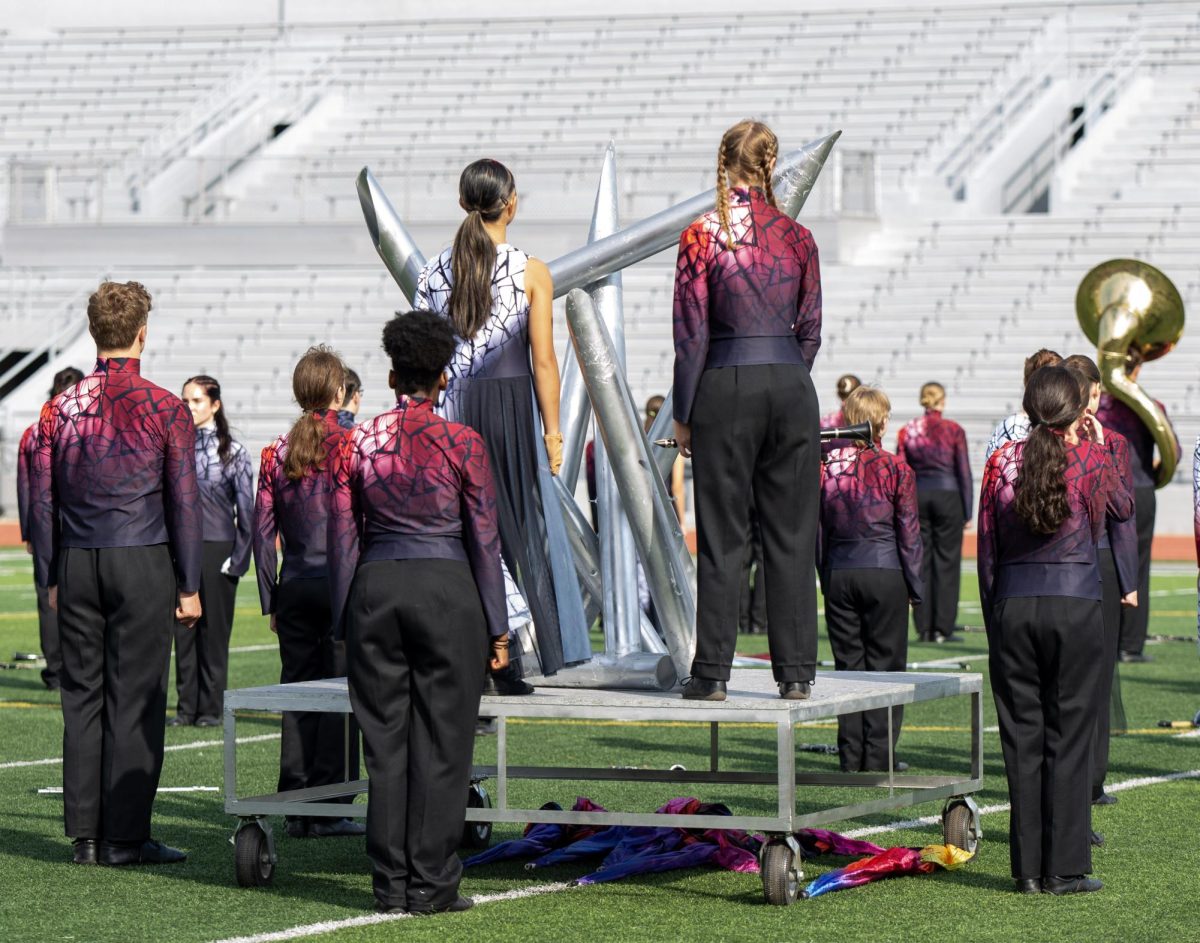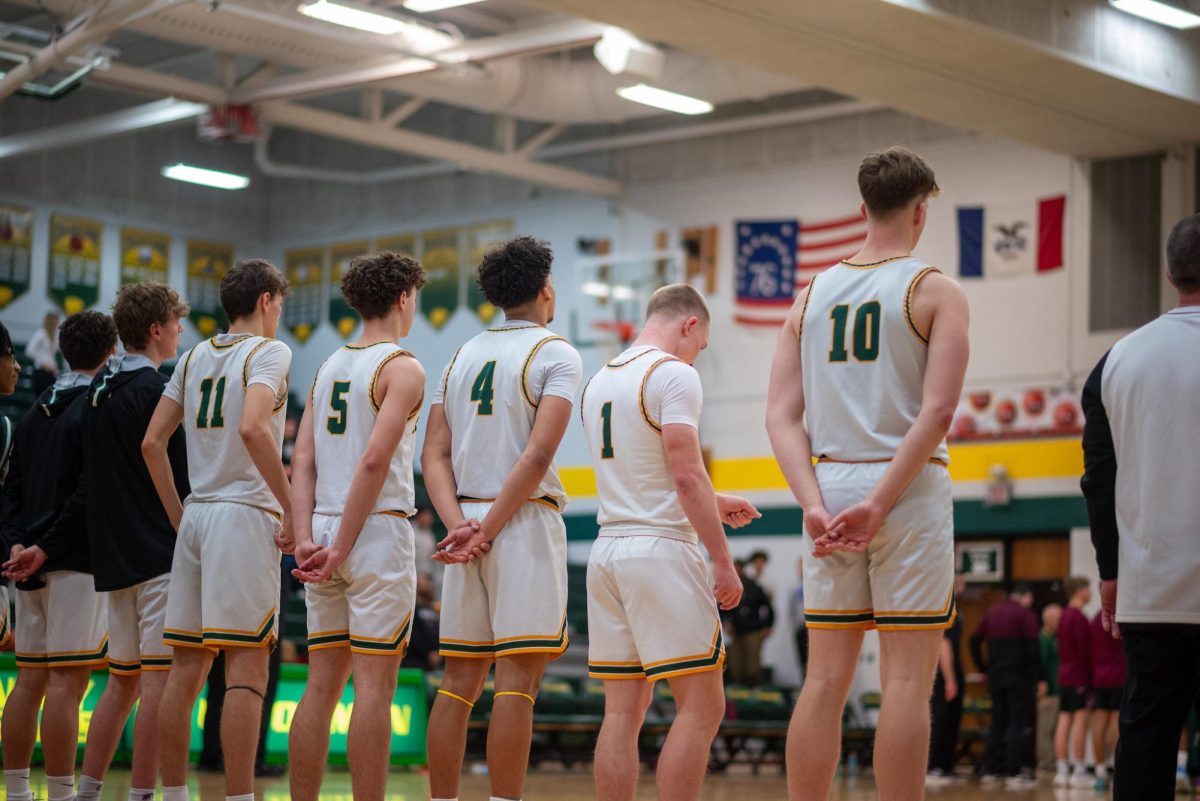Kiddos Come to Psych Class
Annual “Piaget Day” at Kennedy tests kids’ cognitive development
November 1, 2017
The annual “Piaget Day”, named after psychologist Jean Piaget, was held in Dana Melone’s AP Psychology class at Kennedy. Kids ages 3-8 are brought in voluntarily by students in the class.
Six different stations are organized, each consisting of one experiment conducted for these kids to participate in. These experiments are meant to show what general age kids develop certain skills, essentially trying to prove Piaget’s Theory of Cognitive Development. This year each class brought in three to five kids, some of every age.
“I brought in my sister who is 8 and she had a pretty good understanding of all the experiments,” Olivia Bowden, so., said.
One of the experiments was to show them a Band-Aid box and ask what they think is inside– all kids answered Band-Aids. Then, the students open the box to show the younger kids that there are actually markers inside. To complete the experiment, students asked the kids what their best friend would think is inside the box. Depending on what age the kids were, some answered Band-aids (correct answer) and some answered markers.
“It was interesting to see kids answer markers because you don’t really remember being that young and having trouble understanding questions like that,” Laura Crock, so., said.
An easier experiment was simply asking the younger kids how old they are and then asking how old they think the high school student is. Some kids guessed the same age, others took a wild guess. This experiment went along with the term ego-centrism, the ability to differentiate between self and other. According to Piaget’s theory, ego-centrism starts as an infant and fades by age 7.
“This helped me grasp a better understanding of Piaget’s theory and the different stages of development,” Camryn Ray, so., said.
























